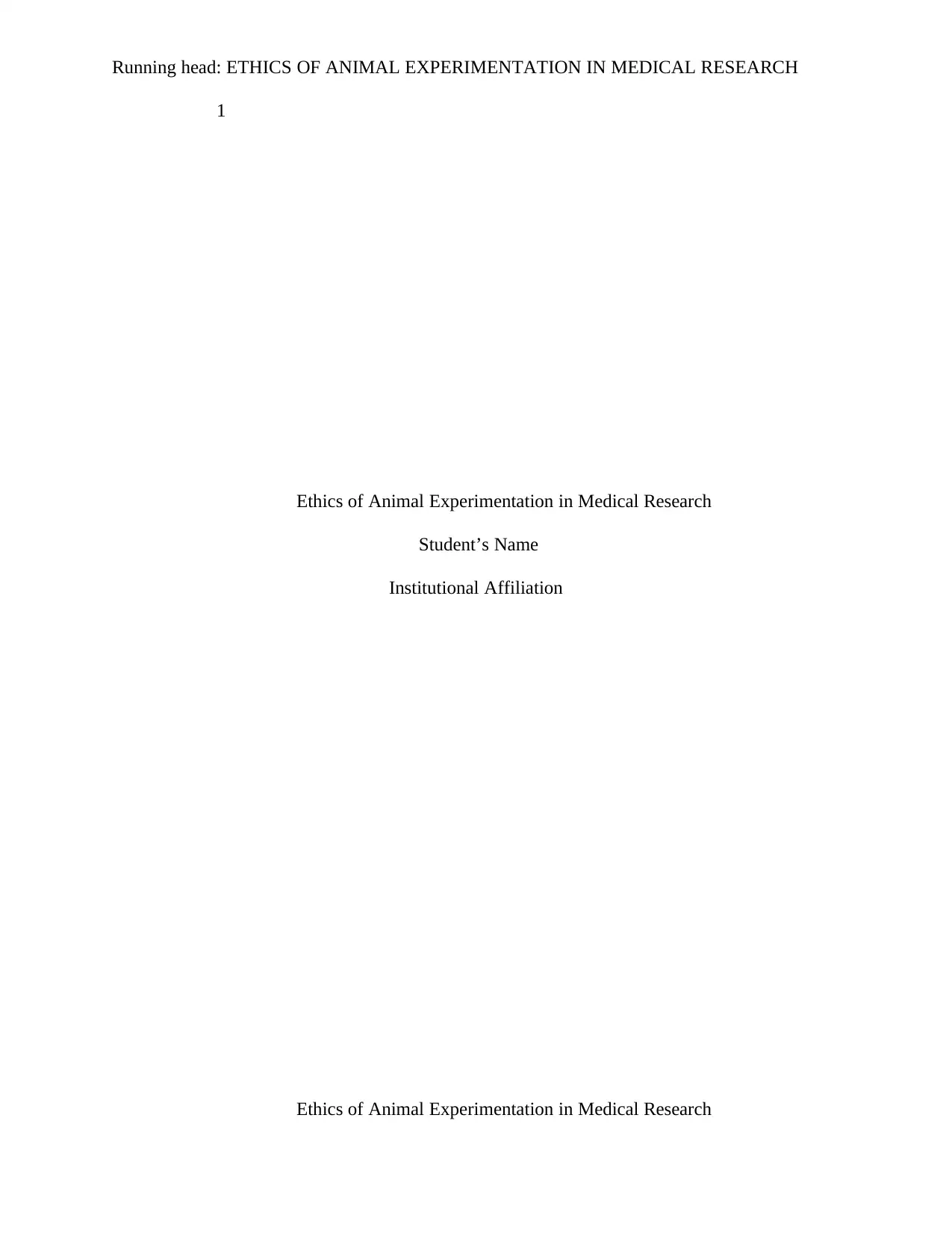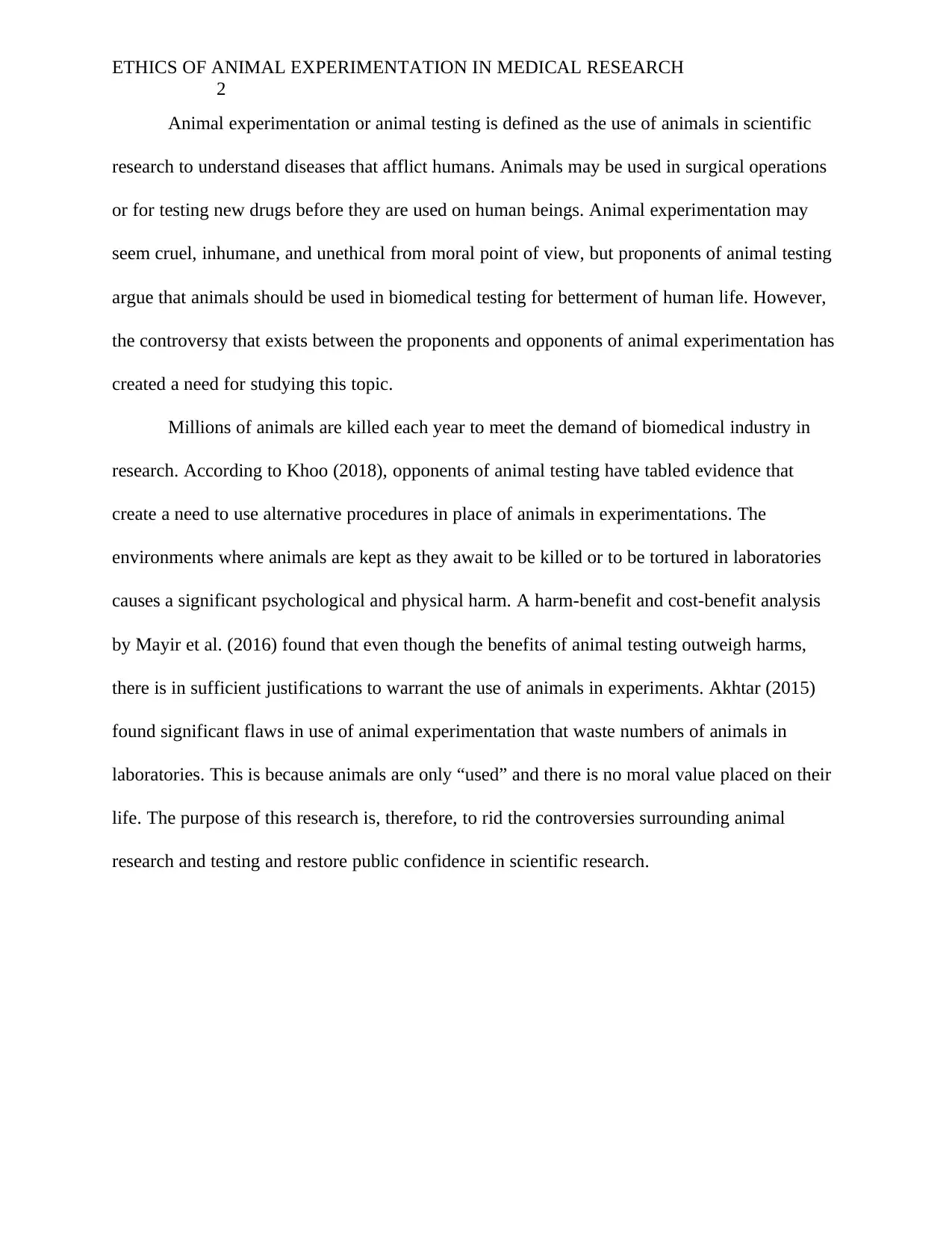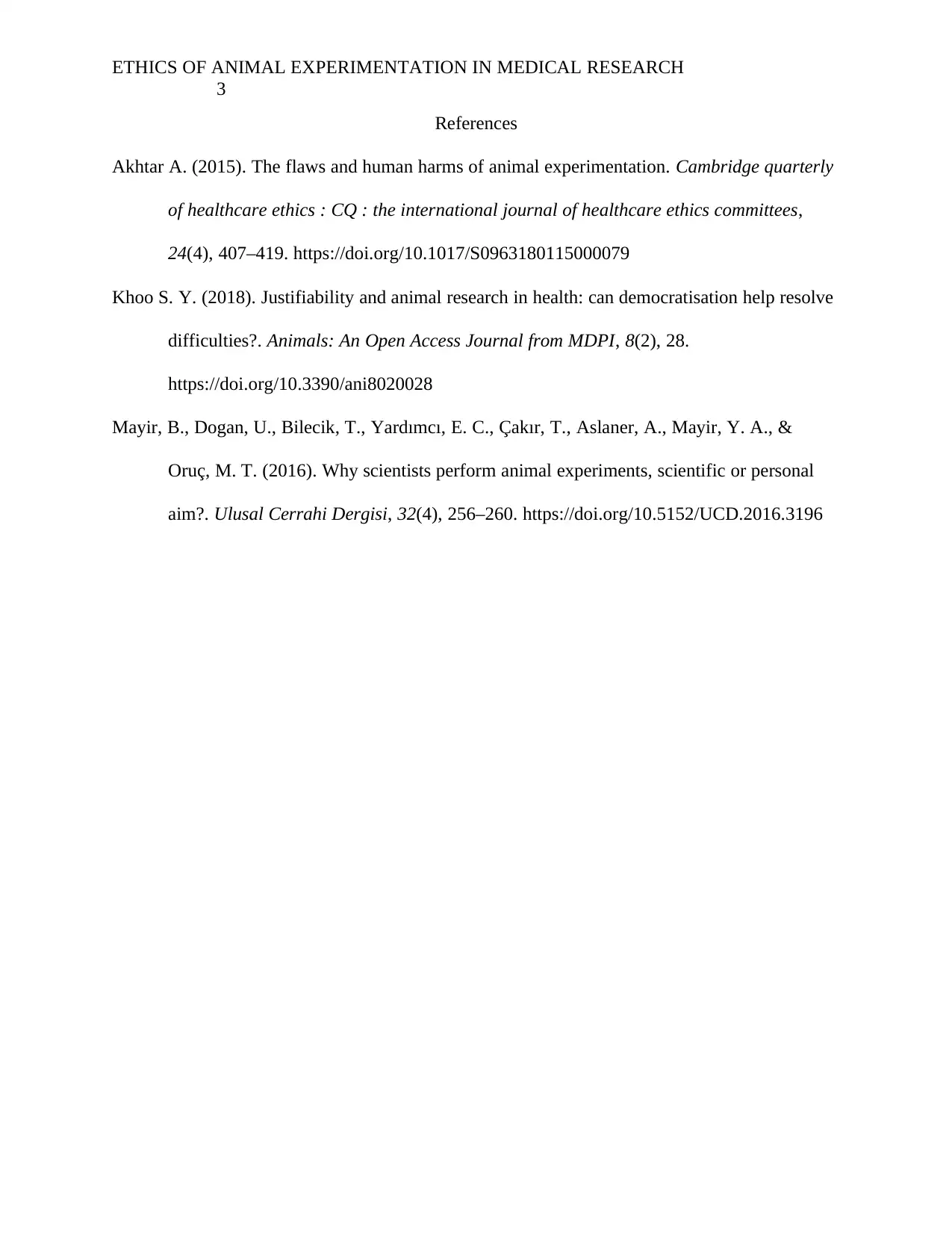Analysis of Ethical Considerations in Animal Experimentation Research
VerifiedAdded on 2022/07/28
|3
|450
|35
Report
AI Summary
This report delves into the ethical considerations surrounding animal experimentation in medical research, exploring the controversies and arguments for and against its use. The report highlights the significant number of animals used in biomedical research annually and the potential psychological and physical harms inflicted upon them. It references studies and research papers that discuss the need for alternative procedures and the ethical flaws inherent in animal testing, focusing on the lack of moral value placed on animal lives. The report aims to address the ethical dilemmas and to restore public confidence in scientific research by examining the complex issues surrounding animal experimentation and its impact on the scientific community and society.
1 out of 3










![[object Object]](/_next/static/media/star-bottom.7253800d.svg)